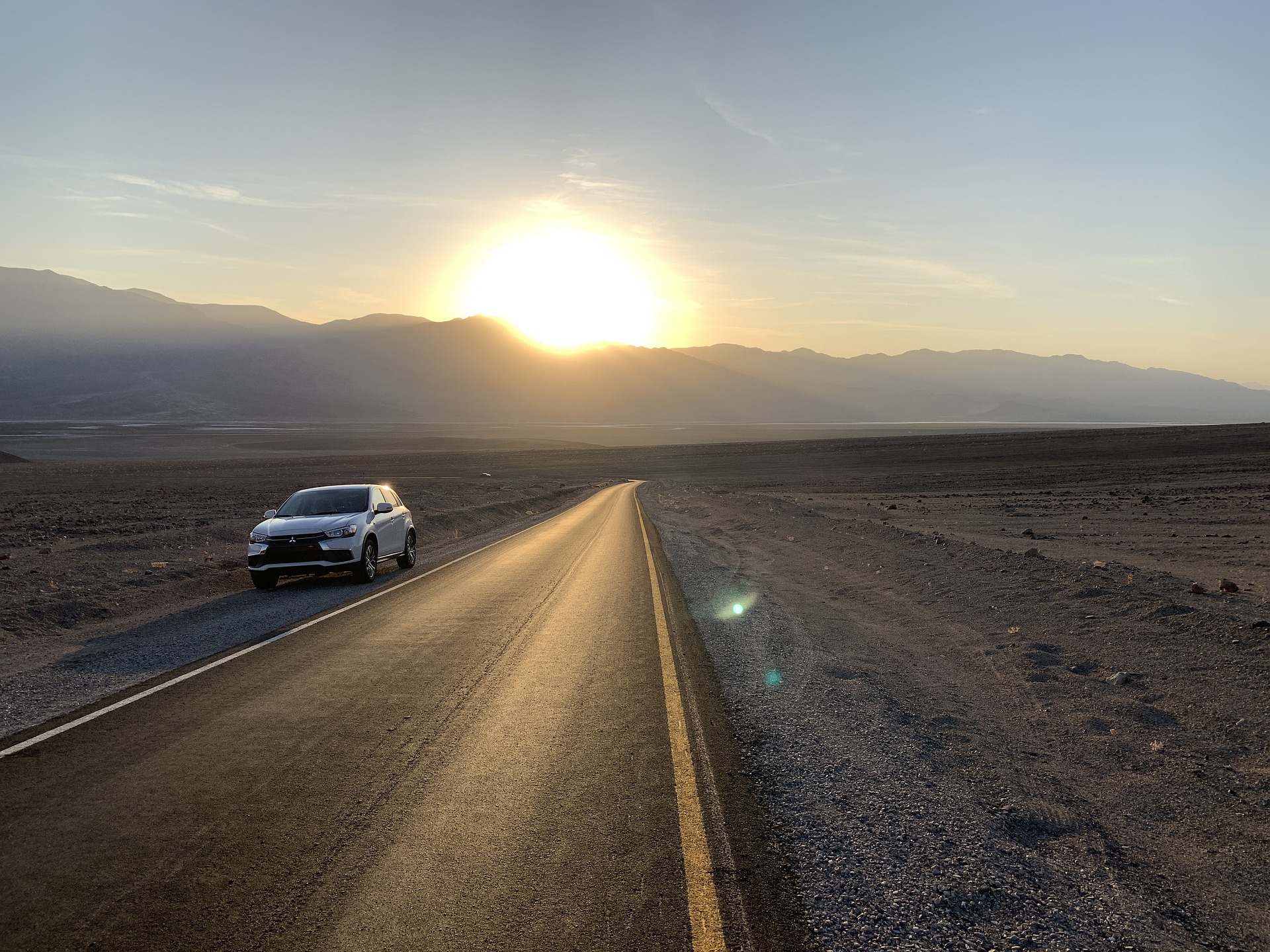Lifestyle
4 Things You Won’t Worry About If You Just Ship Your Car to Another State

While some people might disagree, I believe I speak for the majority when I say that nobody wants to worry about anything in the world if they can help it. Life is already way too complicated to stress about every little thing that happens — like how you can get your car to another state.
There are a number of reasons why you would suddenly find yourself needing to transport your vehicle to a different place. The reason can be personal, work-related, or maybe it’s just something that needs to happen so you can start the next chapter of your life, as in the case of moving.
But we’re not here to talk about that.
Instead, we’re here to talk about how you’re going to do it and there’s really only one right answer: You would need to ship your car.
Right about now, you’re probably thinking “But I want to explore my options” or something along those lines. And of course, that you may very well do. However, while there are other ways to get your car to where it needs to be — such as driving it yourself — all these other options are frankly uninviting.
Let’s be honest. If you’ve been driving for long enough, you would know for a fact that long distance drives are no walk in the park (read more). To hell with the whole “driving is so therapeutic” spiel; that only works if you’re maybe driving 5-10 miles tops without traffic and with good music. But 10+ hours in the middle of nowhere?
Two words: Hell no.
If you’re still not too convinced, here are 4 other things you don’t have to worry about if you just ship your car instead of driving it.
No Sore Back & Aching Knees
Long drives are enjoyable until they aren’t. When you’re stuck in a semi-comfortable seating position, with your feet on the pedals, your eyes fixed on the road, and your hands on the wheel, the fun doesn’t remain fun for too long. Instead, it’s replaced by backaches, knee pains, and eye strain.
Long distance driving is a physically taxing activity so don’t easily fall for the whole “driving is therapeutic” spiel. Maybe that applies when you’re driving aimlessly for 40 minutes to an hour max without any heavy traffic but certainly not on busy highways for 10+ hours. If suffering from a hunched back for the next two weeks ain’t your vibe, just leave the shipping task to the professionals.
No Downtime From Work
Another worry you probably have with this whole long-distance trip is the fact that you can’t really do anything else besides drive for tens of hours during the transfer. Even if you think you can multitask, you really shouldn’t as it risks your own safety and those of others who are on the road with you. During the drive, you can do little to no work which means a decrease in your productive hours for the week.
If you don’t really want to take a leave from work for whatever reason, then shipping a car to another state instead of driving it is your best option. This way, you can keep to your tasks and avoid unnecessary disruptions to your normal work schedule.
No Car Trouble

Just the mere mention of getting car trouble can instantly turn any vehicle owner’s day sour. Now, imagine it happening in the middle of nowhere, when you’re miles away from your car’s regular mechanic. It would be a downright nightmare and that’s no exaggeration.
Interstate highways aren’t exactly lined up with establishments. It could be miles before you can find a decent auto shop that can take your car in and even then, you have zero assurance that your ride can be fixed in a matter of a few hours. Getting car trouble, being stuck in the middle of nowhere, delayed appointments, and high repair fees is a complete recipe for disaster – easily avoid it by having your car shipped instead.
No Multiple Gas Stops
If you think that you’re going to save a lot of money by driving yourself to another state, then we’re about to burst your bubble. Yes, you may save a couple hundred bucks by not having your car professionally shipped. However, the cost savings don’t really make sense as compared to the time, energy, and effort you will have to expend to make the long-distance trip possible.
Also, it’s not like the trip won’t cost you anything at all. There’s gas, maintenance fees, and possibly after-trip repair fees to worry about. Not to mention, you will have to eat and drink, and maybe even turn in for the night at a highway motel during the drive. You will still end up spending money. Here’s the average of what you’ll spend shipping your car instead: https://www.consumeraffairs.com/auto/cost-to-ship-a-car.html.
If you take all of that into account, then paying a few hundred dollars to ship your car out instead, becomes a more practical and cost-efficient option.
Lifestyle
From Broken to Whole: The Radical Reawakening Behind The XI Code

Elle dela Cruz
Most healing begins with the assumption that something is broken. That the fix lies in the right therapist, diet, retreat, or ritual. Patchwork solutions for a fragmented self.
But for clients of The XI Code, the breakthrough did not come by fixing what was broken, it came by remembering what was never damaged to begin with.
It is not a spiritual placebo or self-help remix, rather a recalibration, a return, a radical stripping away of every distortion that ever claimed authority over who you are. Founded by Masati Sajady, The XI Code has become a sanctuary for those who sensed there had to be more and now live the proof of it.
This is not talking about polite gratitude or glow-up affirmations, these are accounts of full-system transformation, physical regeneration, identity coherence, and a kind of inner homecoming that makes every previous attempt feel like a rehearsal.
“This isn’t about self-help,” says Masati. “This is about self-realization. There is a version of you untouched by pain, trauma, or time and that is what XI reveals.”
Remembering the Self Beneath the Static
Those who enter the XI space often describe their experience not as something new they learned but as something ancient they finally remembered. One client shared: “I listened to Masati’s podcasts during a bottomless depression. I swear it pulled me from the dark to the light.”
But the words they use are not mystical or out of reach, rather grounded. “I feel safe in my body.” “I’ve come home.” “I finally see myself.”
This is not a performance of healing, it is a quiet, cellular knowing.
“I survived death and decoded life,” Masati explains. “I returned with the blueprint for those ready to rejuvenate the body, unlock peak performance, and evolve humanity.” Those words, radical to some, feel like a memory to others. As if, somewhere deep inside, they always knew this was possible.
When the Body Starts Listening
While XI is not a medical protocol, many clients describe physical transformations that coincide with their inner shift. One wrote: “I’ve begun rendering myself as my highest form, right here, in this space and time continuum.”
Another called it “the most effective healing method” they had found after years of traveling the world for answers. But the common thread was coherence. A recalibration across dimensions: physical, emotional, energetic, and ancestral. It is about resolving distortion at the origin point.
Rewriting the Lens of Reality
After engaging with The XI Code, many report not just feeling better but seeing life differently. Like a veil lifted. Like their perceptual field was reset.
One wrote: “My whole life is changing in every way and it’s just unfolding on its own. Every day, synchronicities. It’s like magic.”
Another put it simply: “I found my home and I wasn’t even looking.” Again and again, the word home appears in these testimonials not as a destination but as a state of being.
Masati explains this with precision: “XI doesn’t upgrade the version of you that’s broken. It reveals the YOU that was never broken to begin with.”
A Quiet, Powerful Community
Though The XI Code is not marketed as a group program, many clients describe a shared energetic field as being held by a collective intelligence moving through similar layers.
“I can’t wait to wake up and see how much more beautiful I’ve become,” one said not from ego but from evolution.
Because the work does not stop when the session ends. The system keeps unfolding, recalibrating, and upgrading.
Not for Everyone But For the Ready
Masati is unapologetic: “The XI journey requires the courage to see Truth on all levels, in all arenas, and to accept responsibility for the Life you’ve been gifted.”
It is not for those seeking a new story to believe in, rather for those ready to remove every distortion that ever told them they weren’t enough.
And what remains? The version of you before distortion and the one that was always whole.
You do not need to become someone new. You need to meet who you were before the noise.
-

 Tech4 years ago
Tech4 years agoEffuel Reviews (2021) – Effuel ECO OBD2 Saves Fuel, and Reduce Gas Cost? Effuel Customer Reviews
-

 Tech6 years ago
Tech6 years agoBosch Power Tools India Launches ‘Cordless Matlab Bosch’ Campaign to Demonstrate the Power of Cordless
-

 Lifestyle6 years ago
Lifestyle6 years agoCatholic Cases App brings Church’s Moral Teachings to Androids and iPhones
-

 Lifestyle4 years ago
Lifestyle4 years agoEast Side Hype x Billionaire Boys Club. Hottest New Streetwear Releases in Utah.
-

 Tech7 years ago
Tech7 years agoCloud Buyers & Investors to Profit in the Future
-

 Lifestyle5 years ago
Lifestyle5 years agoThe Midas of Cosmetic Dermatology: Dr. Simon Ourian
-

 Health6 years ago
Health6 years agoCBDistillery Review: Is it a scam?
-

 Entertainment6 years ago
Entertainment6 years agoAvengers Endgame now Available on 123Movies for Download & Streaming for Free
